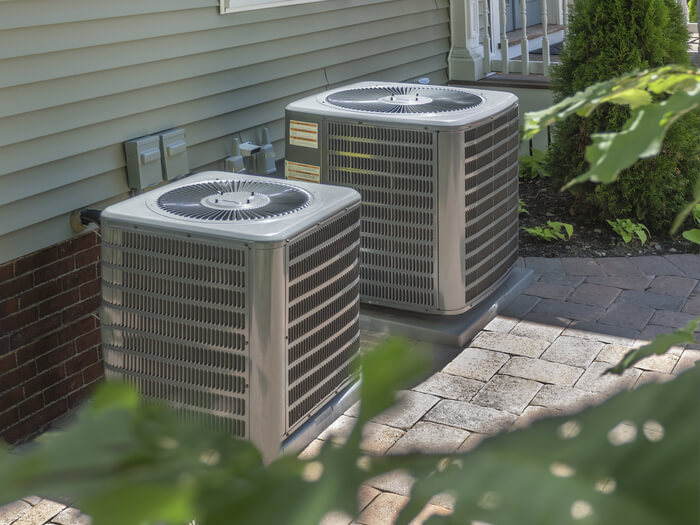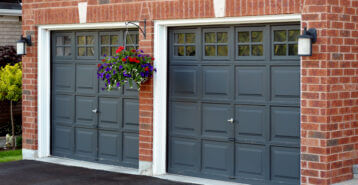Are you doing an HVAC project?
Modernize can pair you with three to four pros in your area, so you can compare options and save time and money.
Compared to other home renovation projects, calculating your estimated air conditioning return on investment can be tricky — but don’t let that intimidate you away from it!
One of the most stressful situations a homeowner faces is when an air conditioner or heater stops working unexpectedly. Not only is it inconvenient, it can also be unsafe if you have children or pets in the home. Although air conditioning units play a pivotal role in keeping your home comfortable and cozy, you might not think much about it until it’s in need of immediate repair.
Buying a new energy-efficient air conditioning unit can be a cost-effective investment for your home, offering you a valuable return on investment and saving you the headaches of trying to repair a broken system around your already busy schedule. Additionally, a new cooling system can save money on your monthly energy bill.
Let’s take a look at the most common costs you’ll encounter when selecting and installing a new air conditioning unit, and how you can recoup some of those costs.
Selecting Your New Air Conditioning Unit
When installing a new air conditioning system, one of the first decisions you’ll make is the unit size necessary to properly cool your home. Each ton of an air conditioning unit’s cooling capacity can cool about 400 square feet of home. Therefore, as an example, a 2,000 sq. ft. home would require a 5-ton unit.
In general, the larger the unit requirement, the higher the cost. For the example above, a 5-ton unit will cost about $3,690 — not including installation fees.
Another important consideration when comparing air conditioning units is their energy efficiency, represented by SEER ratings. These ratings range from 13 (standard efficiency) to 24 (max efficiency) and increase in price as the rating increases. A 15-16 SEER rating air conditioning unit, which is considered high efficiency, can cost an average of $3,420 after installation. Compare this to a 19-21 SEER rating unit which costs an average of $5,390 after installation.
While the more efficient units have a higher price tag and installation fee, they can offer you additional savings on your cooling energy bill costs.
Finally, you’ll want to consider your air conditioning brand. While this might not seem as important as other factors, some brands offer extensive warranties, boast incredible customer support teams, and offer smart home technology for your new unit.
Understanding your home and personal cooling needs will help you select the most effective air conditioning system and make calculating your ROI that much easier.
Find the Right Contractor for Your HVAC Project
Whether you’re ready to begin your project now or need some expert advice, our network of contractors are here to help. With a few simple questions, we’ll find the best local professionals for you

Your Savings with a New Air Conditioning System
The Department of Energy provides resources for homeowners looking to make improvements to their home. These tools offer formulas for air conditioning savings, understanding the impact of your unit’s SEER rating, and your average energy savings at various efficiency levels.
Using the DOE’s calculators can be difficult if you don’t know specific information about your home and your new unit. For a more general estimate of your costs, our cost calculator is perfect for homeowners looking to repair or replace their air conditioning system. After inputting some general information about your home, such as your zip code and square footage, our tool will provide you ballpark figures for models at various SEER ratings, as well as showing you how much you can expect to save over time with each unit.
Unfortunately, there’s no exact method for determining the amount of energy you’ll save with the help of a new air conditioning system. However, using calculators like the two above can help you gain valuable insight to average savings you’ll see and allow you to more accurately calculate your air conditioning ROI.
Also, consider that newer units are designed to be much more energy-efficient. For instance, if your air conditioning is over a decade old, a new ENERGY STAR unit could perform up to 20% more efficiently. In many cases, that improved performance directly translates into savings on energy bills.
Available Incentives and Rebates
One of the final things to consider when estimating your air conditioning ROI is the availability of rebates and credits in your area. Many local utility companies offer rebates for high-efficiency air conditioning systems. Contact your local energy provider to find out if they offer any rebates on new air conditioning units, and factor these savings into your ROI calculations.
Additionally, there are plenty of government incentives for energy-efficient home improvements. Check out the Database of State Incentives for Renewables and Efficiency (DSIRE) to search for energy-efficient incentives in your state.
What This Means For Your Wallet
With an average ROI of 35–50%, installing a new air conditioning system might not be at the top of your home renovations list, but replacing an old unit can save you substantial money on energy costs and can help attract buyer interest. And while some buyers might not notice a new system, they’re sure to be deterred by an outdated or worn system.
Spending a hot summer night (or two, or three) with a broken air conditioning is sure to make any homeowner miserable. Start planning your air conditioning renovation project today by exploring the available options and making the best decisions to boost your ROI and keep your home as comfortable as possible.
Find the Right Contractor for Your HVAC Project
Whether you’re ready to begin your project now or need some expert advice, our network of contractors are here to help. With a few simple questions, we’ll find the best local professionals for you
Reviews from Real Homeowners
Welcome to Homeowner Resources! We are the Modernize blog. Modernize pairs more than 3 million homeowners a year with pre-vetted contractors in their area. This blog started because we believe homeowners should know everything about their homes, from how their HVAC works to which front door colors they might love. On Homeowner Resources, you can find information on every part of your home, right down to how you can negotiate with contractors to get the best price. Here's more about the blog.
Need a contractor? Learn more about how Modernize finds the right pro for you.



